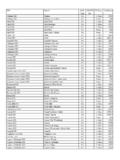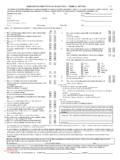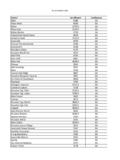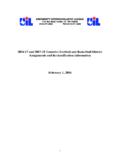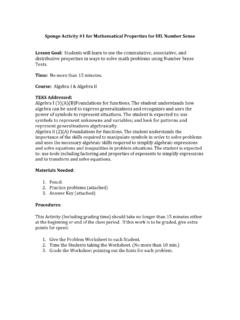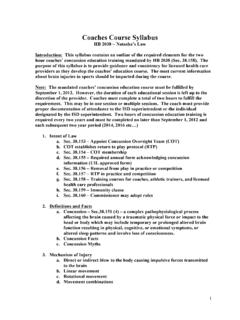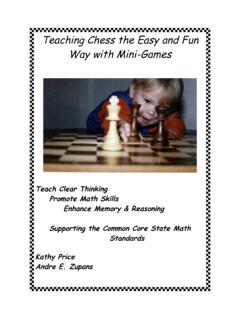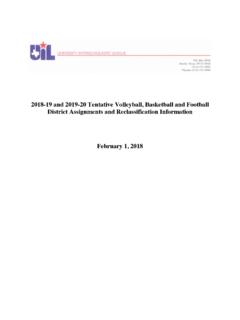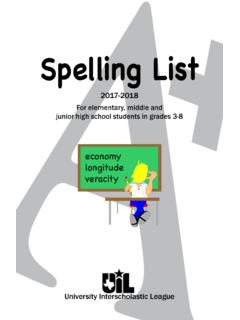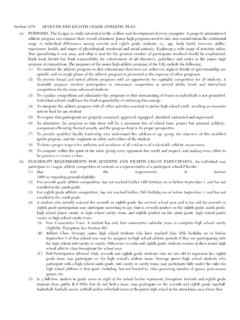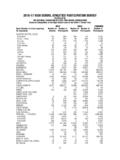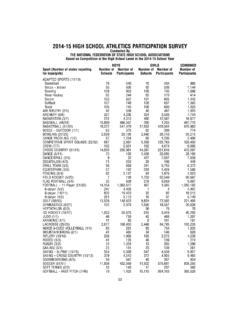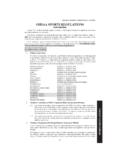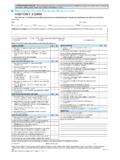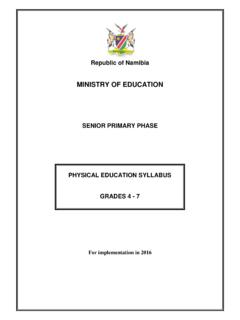Transcription of TEA&UIL IDE byIDE
1 TEA&UIL. SIDESIDE. by For the 2014 -2015 school year Eligibility for Extracurricular Activities (Revised July 2014 ). university interscholastic league Purpose UIL publishes this document to provide member schools notice of Texas Education Agency regula- tions which relate to UIL and all other extracurricular activities sponsored or sanctioned by the school district. Texas Education Agency staff does not answer questions for UIL activities concerning the issues set forth in this document. That authority was delegated to the UIL by the Commissioner of Education effective June 1, 1994. This document provides explanations and interpretations of SBOE. rules, Commissioner of Education rules, UIL Constitution and Contest Rules and statute. There are numerous interpretations of statute and rules that are continually under review. In some instances, further review of an issue due to additional information or unusual circumstances may result in a modified response, depending on the individual case.
2 Local district officials may impose stricter stan- dards than those cited in rule or statute, but shall not impose more lenient standards. Distribution of this document This material should be made available to elementary, middle school and junior high school princi- pals, to counselors, UIL academic coordinators and sponsors/coaches, directors of UIL music activi- ties and one-act play, and athletic administrators, coaches, and others who sponsor extracurricular activities. You can either duplicate the material or inform your staff how to access it via the UIL web site. The UIL web site is the best source for the most recent changes. The UIL Constitution and Con- test Rules may also be found on the UIL web site. Who to call For questions regarding UIL activities, you may contact the following: -Athletics: Dr. Mark Cousins, Director of Athletics; -Music: Dr. Bradley Kent, Diretor of Music; -Academics: Dr.
3 David Stevens, Director of Academics; -Policy: Dr. Jamey Harrison, Deputy Director; Please do not call the Texas Education Agency, as the Commissioner of Education has instructed Agency staff to refer calls to UIL. For questions related to stock shows, FFA, 4-H, FHA and other career/technical student organizations, refer to Other Non-UIL Activities. If you still have questions, contact the Texas Education Agency at 512-463-9734. Compliance Please remember that all participants in school extracurricular activities must comply with TEA provi- sions cited within this document. For other activities sanctioned by the school district, see the section titled Other Non-UIL Activities.. able ontents Limits on Practice and Performance Academic Requirements (No Pass No Play) 12 Commissioner of Education Regulations Limiting Contests Per school Week 3 Eligibility for UIL Participants for the First Six Weeks Activities Preceding Administration of Statewide Eligibility for All Extracurricular Participants after Student Assessment Program the First Six Weeks of the school Year Eight Hour Limitation 4 Semester Grades Practice by Ineligible Students Identification of Honors Courses under TAC 14 UIL Regulations Limiting Contests Per Calendar 5 Exempting Locally Adopted Honors Classes Week Refusing to Exempt Students Who Fail Honors Sunday Prohibition and Exceptions Classes 14 school Attendance on Day of Contest Dropping a Course Eligible for Exemption Make-up Days Affect school Week Limitation Dropping a Class with a Failing Grade Unrelated Activities Treated Separately Physical Education Credits UIL Academic Spring Meet Considered Tournament
4 Elementary/Junior High Subject to No Pass No Play Rules Governing Activities During school Week Credit for Summer school , Correspondence and school Day Courses, or Credit by Exam Activities During Finals Week Holding Back Seventh and Eighth Graders Band Contests vs. Band Performances Impact of Student Success Initiative on Eligibility Missing Class for Practice Post-District Activities 6 Entering Grade Nine at Second Semester Special Education Students Regaining Eligibility Through the school Year Reporting Ineligible Students on Eligibility Blanks Definition of Extracurricular Activities Regaining Eligibility at 3-Week Evaluation Period TAKS Review Courses Incomplete Grade 7 Changing Grades for Eligibility Purposes Extracurricular Absences College Courses Minimum Attendance Requirements Determining Grading Requirements Social Functions First Aid/CPR/AED Certification Requirement Travel by Ineligible Students Prohibited Participation in Scrimmages Travel on school Designated Educational Trips Ineligible Students Prohibited from Assisting with Cheerleading and Drill Teams Activities 17 Try Outs/Selection Procedures 8 Grading Based
5 On Participation in Activities Family Education Right to Privacy Act (FERPA). Parent Night Activities One Contest Per school Week Pep Rallies Try Outs by Ineligible Students Parades Athletic Classes Scheduled Outside the school Day 18 Practice During school Day, Non-Class Time Practice During Class Time Participation in Activity without Enrolling in Class Time Allowed for Practice Enrollment in Two Physical Education Classes Participation in Pep Rallies Early Dismissal for Pep Rallies Travel to Competitive Activities Admission Travel to Educational Field Trips 8 Homeless Students Eighteen Year Old Students 8-9 Public Education Grant Transfers Other Non-UIL Activities 18 Absences for Participation in Non- school Sponsored Activities Participation While Failing a Course Suspension Periods for Non-UIL or Non- school Enrollment Requirements Sponsored Activities High school Graduates' Participation 9 Number of Classes Required to Be a Full-time Student Showing Livestock of Ineligible Students College Courses Preparation of Animals by Ineligible Students 10 Junior High Students Enrolling in High school Classes Sale or Auction
6 Considered Extracurricular Activity Alternative Setting for Behavorial Management Absences for Post-district Competition 10-11 Students Who Enroll After First Six Weeks 20 Calf Scrambles Athletic Periods Penalty for Participation by Ineligible Students Marching Band Periods Examples of Eligibility Dates Related to school Holidays for 2014 -15. Academic Requirements (No Pass No Play). Eligibility for UIL Participants For The First Six Weeks UIL participants are eligible to participate in contests during the first six weeks of the school year provided Academic Requirements (No Pass No Play). the following standards have been met: Students beginning grades nine and below must have been promoted from the previous grade prior to the beginning of the current school year. Students beginning their second year of high school must have earned five credits which count toward state high school graduation requirements.
7 Students beginning their third year of high school either must have earned a total of ten credits which count toward state high school graduation credits or have earned a total of five credits which count toward state high school graduation requirements during the 12 months preceding the first day of the current school year. Students beginning their fourth year of high school either must have earned a total of 15 credits which count toward state high school graduation credits or have earned a total of five credits which count toward state high school graduation requirements during the 12 months preceding the first day of the current school year. Exceptions: (a) When a migrant student enrolls for the first time during a school year, all criteria cited above applies. All other students who enroll too late to earn a passing grade for a grading period are ineligible. (b) High school students transferring from out-of-state may be eligible the first six weeks of school if they meet the criteria cited above or school officials are able to determine that they would have been eli- gible if they had remained in the out-of-state school from which they are transferring.
8 Students who are not in compliance with these provisions may request a hardship appeal of their academ- ic eligibility through the UIL state office. Local school boards may elect to adopt these standards for all activities in order to avoid having different standards for student participants ( , football, drill team, cheerleading, and all other extracurricular activities as defined by Commissioner of Education rule [19 TAC Chapter 76]). Eligibility for All Extracurricular Participants After First Six Weeks of the school Year A student who receives, at the end of any grading period (after the first six weeks of the school year), a grade below 70 in any class (other than an identified class eligible for exemption) or a student with disabilities who fails to meet the standards in the Individual Education Plan (IEP) may not participate in extracurricular activities for three school weeks.
9 An ineligible student may practice or rehearse, however. The student regains eligibility after the seven calendar day waiting period has ended following a grading period or the three school week evaluation period when the principal and teachers determine that he or she has earned a passing grade (70 or above) in all classes, other than those that are exempted. All schools must check grades for all participants at the end of the first six weeks of the school year. From that point, grades are checked at the end of the grading period whether it is six, nine, or twelve weeks in length. Students who pass remain eligible until the end of the next grading period. All activity coaches and directors are responsible for obtaining official grade reports from the individual the principal designates as the keeper of official grades before the student represents the school . This provision applies to all grading periods.
10 It also applies to all three- school week evaluation periods for ineligible students. All students are academically eligible during a school holiday of a full calendar week or more. When the bell rings to dismiss students for the December holidays, all students are academically eligible until classes resume in January. The same is true for summer recess and fall and spring breaks provided those breaks consist of at least a full calendar week. (See example at the end of this document.). Students in year-round schools are academically eligible during inter-sessions. If a grading period or three school week evaluation period ends on the last class day prior to a school holiday of one calendar week or more ( spring break, winter holidays), the seven calendar day grace period to lose eligibility and the seven calendar day waiting period to regain eligibility begin the first day that classes resume.
